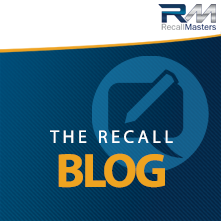The Modern Car Sale Model Goes Toe to Toe with Local Governance
The Modern Car Sale Model Goes Toe to Toe with Local Governance
A Blog Post by Sean Reyes, Chief Marketing Officer for Recall Masters
What consumer doesn’t love the internet? It has been especially transformative for the automotive industry. Not only can shoppers compare vehicles, options, pricing, and availability with a click of the mouse, but they can also purchase the vehicle and have it delivered to their driveway.
The market disruption is in full swing, evident in the revenue generated and the numbers of units sold by organizations that include Carvana, Vroom, Shift, to name a few. A vast majority of franchise dealers have also adopted similar pick-up and drop-off processes. But these dealers haven’t faced scrutiny from state and local governments in the same way the major internet properties have.
Franchise dealers have always felt the heavy hand of government regulations and navigate these familiar grounds by streamlining processes to balance compliance with sales objectives. When it comes to national operations and moving cars across state lines, how do these modern-day, virtual dealerships remain in step with the multitude of legal requirements that span state and local governance?
As it turns out, there are a few cracks.
During this pandemic, Carvana, Vroom, and Shift have seen a massive upswing in sales, simply because they make it so easy for a consumer to buy, finance, and then have the vehicle delivered right to their home. Consumers have found it so easy, and have embraced it so much, that according to an article published on Automotive News, on August 7, 2021, Carvana reported its first quarterly profit EVER!
Ironically, just five days later, the same industry news authority reported that Carvana has been suspended from selling cars in Wake County, NC (which includes the State Capital, Raleigh) for SIX MONTHS. This is due to many violations, including failure to deliver title work, issuing out-of-state temporary tags, and selling vehicles that had not passed the mandatory state safety inspection test!
Let’s look at what the North Carolina Safety Inspection test includes:
“A motor vehicle registered in North Carolina must pass an annual safety inspection before its registered owner can renew its vehicle registration. They can be conducted no more than 90 days before the license plate and registration expires. During a safety inspection, a licensed mechanic examines a vehicle’s:
- Headlights
- Accessory lights
- Directional signals
- Foot brake
- Parking brake
- Steering
- Tires
- Horn
- Rearview mirror
- Windshield wipers
- Exhaust system
- Tinted windows, if applicable
Motor vehicles registered in 22 North Carolina counties must also pass an emissions inspection, conducted at the same time as the safety inspection.
Failure to get a vehicle inspected by the due date will result in a vehicle’s registration being blocked until the vehicle is inspected.”
Of course, they can’t deliver title work and issue out-of-state temporary tags because, while it is legal to sell used cars without safety recalls repaired, it is ILLEGAL to sell cars that haven’t passed the mandatory safety inspection and all that it entails.
It’s easy (and plain) to see that every one of the items included in that list of things inspected is important. Are headlights, brakes, steering, and blinkers important to a driver’s safety? Absolutely.
Is this lack of detail (failing to have a mandatory safety inspection) simply an aberration? Or does it extend to other counties and states where these organizations are selling cars to consumers? Franchise dealers are selling cars faster than they can acquire them. So, it would stand to reason that Carvana, Vroom, and Shift are as well. Carvana even launched a partnership program so they can add (and sell) dealerships’ inventories to have more vehicles available for consumers on their digital retailing platform. And you thought it was hard for dealerships to get cars to sell!
The fact of the matter is that if unsafe vehicles are being sold to consumers because they failed to do mandatory safety inspections, there is little likelihood that open safety recalls are being attended to. That’s not good for consumers and a potential public relations travesty for the industry.
And by no means should you even speculate that this is a “North Carolina” thing. According to the Times of San Diego, just this month Carvana settled a lawsuit for $850,000 with California for selling cars for 4 years without a dealers’ license, transporting cars without a transporter’s license, and… surprise… didn’t provide the inspection reports as required by California law!
Most dealers are compliant with state licensing requirements and adhere to the laws of the state where they sell cars. While buying a car from Carvana, Vroom or Shift is easy, it seems they may want to take a closer look at potentially unsafe vehicle sales that could damage their brands and degrade consumer confidence in all internet vehicle sales.
About the Author


